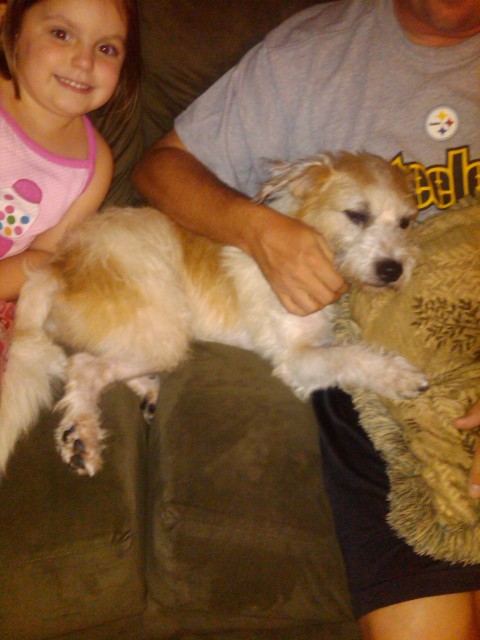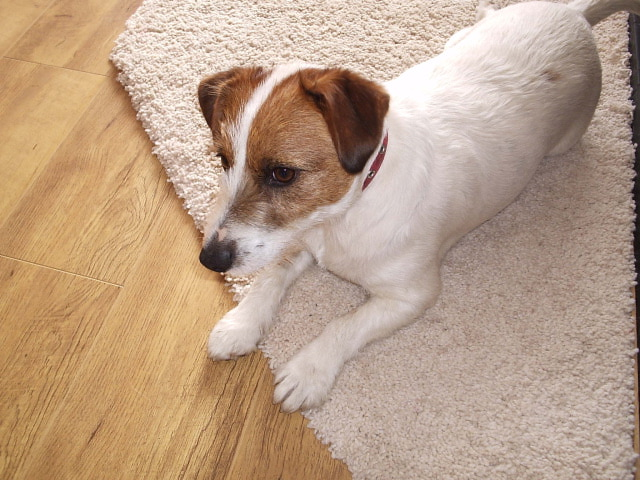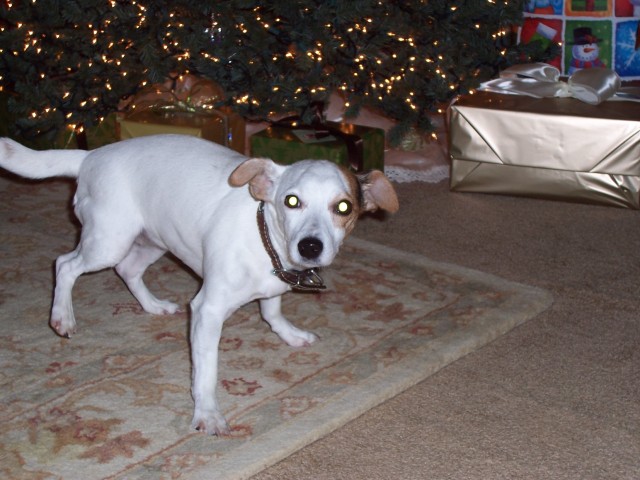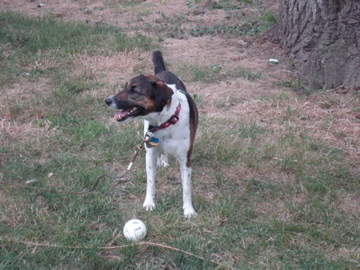QuestionI have a jack Russell terrier whom is 17 now but i have only had her for about a year. She was great when we got her but now she is biting on an every day basis and drawing blood each time,she still seems fit and healthy gets plenty of exercise and is fed well (not dog food)she eats what we eat chicken,pasta nice home cooked food. Why is she turning on me please help because i don't want to put her to sleep she is still a healthy dog. thank you.
neil
AnswerHello Neil,
WOW, 17 is a very long life for a dog. You're lucky that she is still healthy. As much as you may think you are feeding her well, human table food is not good for dogs at all. Good commercial dog foods, and ones specifically made for old dogs have all the required nutrients that are important for your dog. Human table food does not. You aren't doing her any favors by giving her your food. I strongly suggest you get her on a good dry dog food made for older dogs.
At this age, she may be in the first stages of Canine Cognitive Dysfunction or "canine dementia" which is a condition that happens in the geriatric dog. Many symptoms of dementia include snapping and biting, confusion, pacing, having accidents and not recognizing their owners. Another reason she may be biting is because she is in pain. There is no way for our dogs to communicate to us that they are hurting, and aggression/biting seems to be their only way to tell us, especially if the dog has never bitten before.
There are some medications that can alleviate the symptoms of canine dementia and you should make an appointment with your veterinarian to discuss that possible diagnosis and/or to find out what is bothering her (pain).
Best of luck to you both!
Here is a good article on Dementia for you to read more about it:
A medical condition known as canine Cognitive Dysfunction Syndrome (CDS) causes disorientation, confusion, memory loss and personality changes that are very similar to Alzheimer's disease in humans. Canine Cognitive Dysfunction is sometimes referred to as "old dog syndrome", "brain aging", "doggie dementia" or "senility".
Like Alzheimer's disease, the cause of Canine Cognitive Dysfunction is unknown, but physical evidence, found only in autopsies, reveals the same sort of degenerative brain lesions. With age, dogs, like humans, naturally accumulate deposits of beta amyloid, a nerve-damaging protein, in the brain. This starch-like protein builds up, becomes waxy, and forms plaque. As plaque builds up, it clogs the brain and inhibits the transmission of signals from the brain. In both Alzheimer's and Canine Cognitive Dysfunction, excessive senile plaque leads to more severe cognitive impairment.
Some age-related changes, like a graying muzzle, are inevitable. Older dogs are more sensitive to temperature extremes and they move a bit slower. Dogs with Canine Cognitive Dysfunction Syndrome, however, experience changes in behavior which, like Alzheimer's, are not a normal part of aging. The main symptoms of CDS are summarized by the acronym DISH... Disorientation - Interaction changes - Sleep changes - and House soiling.
These changes in behavior could be signs of Canine Cognitive Dysfunction....
Sometimes a disoriented dog....
Stops responding to his name
Forgets once familiar tricks
May stop responding to even basic commands
No longer remembers routines
Stares blankly into space or at walls
Gets stuck in corners, under furniture or behind furniture
Engages in repetitive and compulsive disorders
Paces or wanders aimlessly
Compulsively walks in circles... around a table or from room to room
Appears lost or confused, even in familiar surroundings
Dogs who knew exactly where their yard ended and never crossed the line, wander past the normal boundaries, becoming lost and confused.
Easily agitated and/or barks for no reason.
No longer greet visitors or even family members
No longer try to get attention
No longer care about being petted
They walk away even when being petted and receiving affection.
Dogs who experience changes in sleep patterns...
Sleep more during the day
Sleep less at night
May wander around instead of sleeping
Dogs with CDS sometimes forget housetraining...
They have "accidents" indoors... even soon after being outside
They stop "asking" to go out
They seem to forget the reason for going outdoors

 My Rescued Jack Mix
Question
Oliver
Hello Carol!
I am thrilled to see there
My Rescued Jack Mix
Question
Oliver
Hello Carol!
I am thrilled to see there
 Sore skin/hair loss on Jack R
Question
My lad Fitzroy Fitzroy
Just come
Sore skin/hair loss on Jack R
Question
My lad Fitzroy Fitzroy
Just come
 2 Jack Puppies 10 week old
Question
Lola Jack
Hi!....We just bought t
2 Jack Puppies 10 week old
Question
Lola Jack
Hi!....We just bought t
 Jack Russell w/ Equiliberum problem
Question
Suzy Q
I have a 10 year old JR who has not bee
Jack Russell w/ Equiliberum problem
Question
Suzy Q
I have a 10 year old JR who has not bee
 Parsons Jack Russell Aggression
Question
Padame
My family and I adopted a female JRT (P
Parsons Jack Russell Aggression
Question
Padame
My family and I adopted a female JRT (P